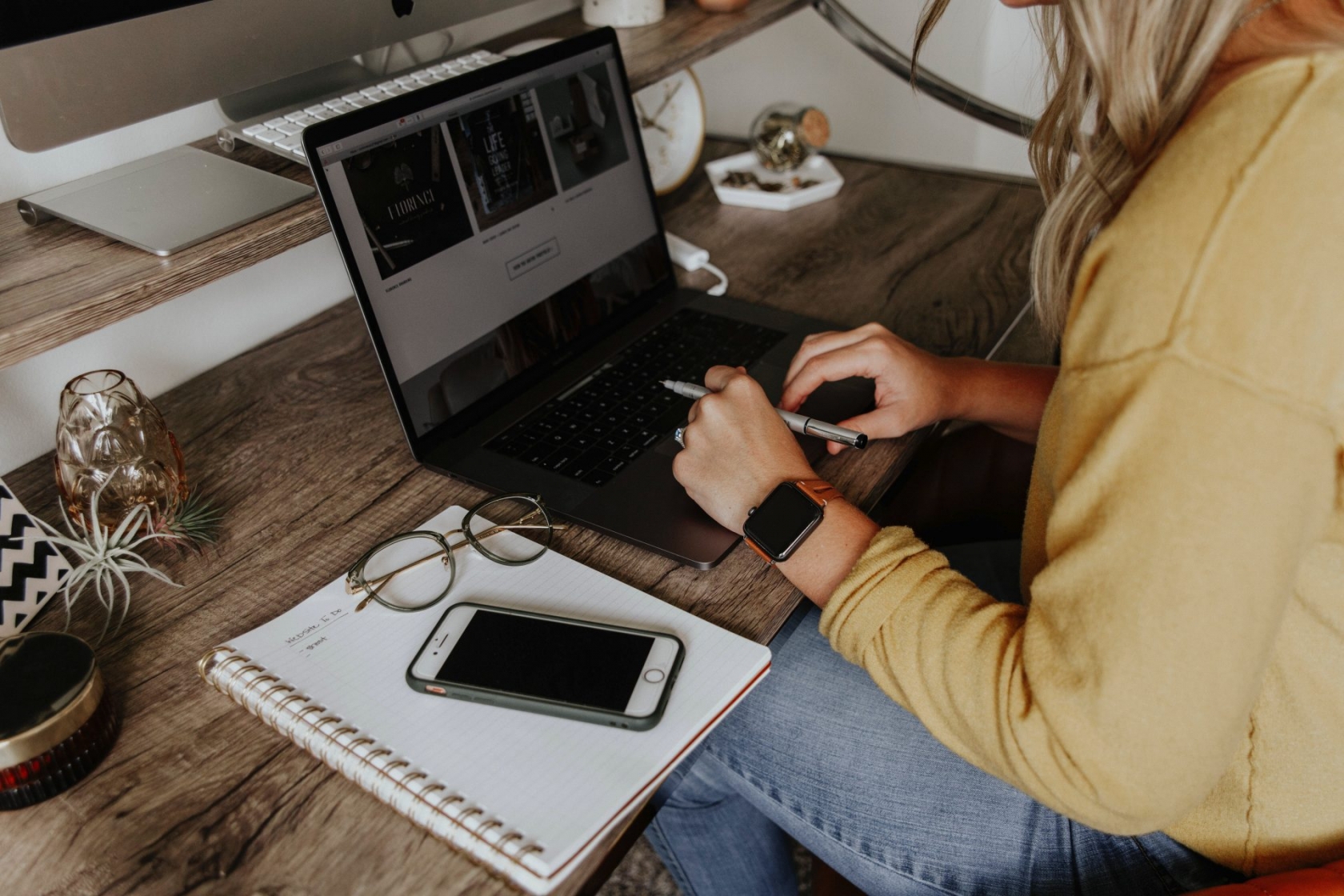Multitasking isn’t just bad for productivity – it impacts mental health, too
Despite what we’ve been led to believe, multitasking isn’t the gold-standard of productivity – here’s why it’s time to give this harmful habit a rest.
Brace yourself for an uncomfortable truth: multitasking is a myth.
Despite how much attention society has paid to this ability over the years (especially when it comes to how well women can apparently do it), only 2% of the population can actually juggle two tasks at once without seeing a drop in performance.
It makes sense, really. When we think we’re ‘multitasking’, what we’re actually doing is simply switching between two tasks at once – we can’t do both things at exactly the same time. And while this may make us feel like we’re being super productive and getting loads of things done, what we’re actually doing is preventing ourselves from focusing on any one of those tasks, because we’re constantly distracted.
You may also like
Working from home: the surprising impact of taking short, regular breaks throughout your day
“When you’re trying to multitask, it can actually be quite distracting,” explains Dr Becky Spelman, psychologist and clinical director of Private Therapy Clinic.
“The only time that ‘multitasking’ can actually come in handy is if you’re doing an automated task – e.g. something you don’t have to think about, like doing the ironing – then the other task is something you can lend your attention to.”
She continues: “Multitasking can only work well when you’re able to give your full focus to one thing – otherwise, there’s no point in multitasking because it’s not going to save you any time.”

I know what you’re thinking – even if multitasking is a myth, surely it doesn’t make much of a difference whether or not we focus on one task or try to do lots at once?
However, the problem with trying to do something that is literally *impossible* is that we put ourselves in a position where we’re trying to do something unachievable – and that has some pretty dire consequences.
First of all, multitasking is mentally exhausting. There’s a reason why you feel so fatigued after a day juggling many different tasks – because multitasking forces our brain to constantly switch between tasks, it actually uses up oxygenated glucose in the brain, which we use to focus.
Research has shown that the kind of ‘switch-tasking’ we do when we think we’re multitasking can lead to a 40% decrease in productivity
And there’s the fact that, alongside taking its toll on our productivity levels – research has shown that the kind of ‘switch-tasking’ we do when we think we’re multitasking can lead to a 40% decrease in productivity – frequent multitasking can actually have a negative impact on our mental health.
Indeed, studies have shown that doing multiple tasks at once not only has the potential to increase our stress levels, it can also increase our risk of depression and social anxiety and lead to memory problems in the long run.
So next time you find yourself answering e-mails while writing a report while listening in to a Zoom meeting, stop. By taking a step back, switching off those notifications and allowing yourself to focus on one task at a time, you’re not just doing your productivity a favour – you’re taking care of your mental health, too.
If working from home is taking its toll on your mental health, you’re not alone. From the isolation of being separated from colleagues and the stress of communicating via technology to the threat of redundancy and the anxiety of applying for a new job, there are a number of reasons why you might find this time particularly challenging.
So, what can we do about it? We’ve got a plan.
Our new Work It Out campaign, supported by Mind, aims to give you the tools and resources you need to take care of your mental health while you’re stuck at home. From completing your Work 5 A Day to dealing with issues including to anxiety, loneliness and stress, we’ll be exploring all aspects of wellbeing during this strange time.
For more information, including how to complete your Work 5 A Day, you can check out our guide to getting started.
Images: Getty
Source: Read Full Article



